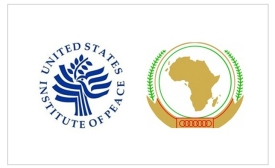africa
Joseph Nye is a University Distinguished Service Professor at Harvard University. He is also the former Dean of the John F Kennedy School of Government at Harvard, the Assistant Secretary of Defense under the Clinton administration from 1994-1995, and a current member of the Foreign Affairs Policy Board. He is the author of many books, most recently Is the American Century Over?
Following a speech at the University of Oxford in early June, he spoke with Samuel Ramani. That interview follows.
The post Ebola epoch presents an challenge for the three most affected countries such as Liberia, Sierra Leone and Guinea to refocus their diplomacy and put their diplomats to work, as these countries especially Liberia seeks international partners as the country emerges from an idle and desperate economic situation which has been paralysed due to the scourge.
Overseas aid was cut from $5.03 billion in 2014-15, to $4.05 billion in 2015-16, a reduction of around 20 per cent. Further cuts are scheduled to follow until 2017-18, by which time Australia's aid budget relative to gross national income will have sunk to 0.21 percent, its lowest level since overseas assistance was formalised in the post-war period. It will also be substantially below what Australia's more prosperous OECD partners allocate.
More than a change in terminology is needed to challenge the view that if you don’t pay you owe unquestioning gratitude. [...] For the billions of the poorest people around the world who rely on philanthropic aid to meet even basic needs, as the saying goes, “beggars can’t be choosers”. But why shouldn’t philanthropic programmes abide by the same consumer rights rules expected of a traditional business selling soap or toothpaste?
The Sudanese Acrobatic Troupe was formed at a time when there was a growing concern with the role to be played by the arts in promotion of the cultural and social development.
The minister of Culture, Rosa Cruz e Silva, said Wednesday that the presence of Angola at 56th edition of the International Venice Biennale of Art is crucial to a functional cultural diplomacy characterised by cultural exchange, debate and fruitful dialogue with counterparts across the world.
A major round table conference on China Africa Communications is set to be held in June where scholars and practitioners will presents arguments in academic and conference papers. Organised by the Africa Communication Research Centre (ACRC) and the Communications University of China, the conference will consist of a mix of plenary and parallel sessions running from 12-13th June 2015 at the Communication University of China (CUC), Beijing, China.








